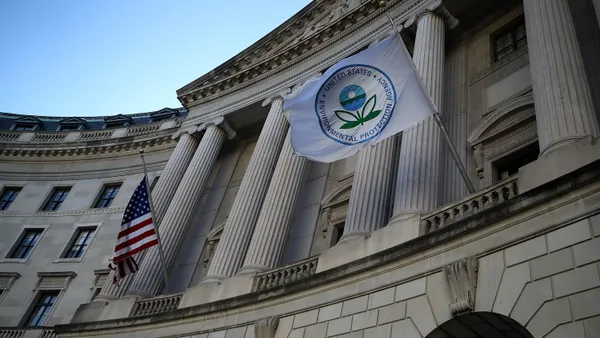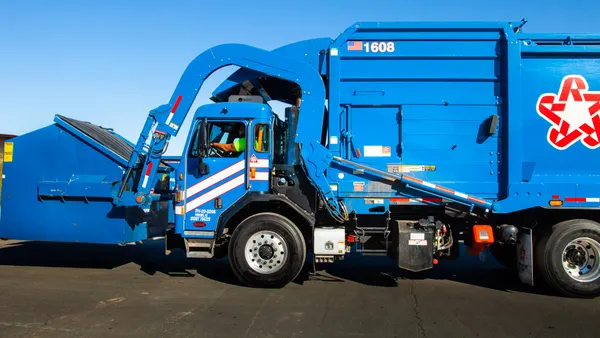Editor's Note: This story has been updated to include a statement from the Department of Transportation.
Dive Brief:
- The Federal Motor Carrier Safety Administration (FMCSA) and the Federal Railroad Administration (FRA) have withdrawn a March 2016 advance notice of proposed rulemaking regarding sleep apnea treatment for highway and rail transportation employees, as reported by Fleet Owner.
- The proposed rule would have required some form of testing and treatment for the condition among drivers, but transportation industry groups pushed back with concerns about the logistical and financial factors involved. Following multiple listening sessions and an extended comment period, the decision was made that "current safety programs and FRA’s rulemaking addressing fatigue risk management are the appropriate avenues" to address the issue.
- One possibility is that the FMCSA will update a 2015 bulletin to medical examiners about how to appropriately screen for the condition. This could potentially incorporate recommendations made during an August 2016 meeting of the FMCSA's Medical Review Board to flag drivers with body mass indexes over a certain level for screening.
Dive Insight:
According to a study by the University of Pennsylvania and the American Transportation Research Institute (ATRI), about 28% of commercial drivers experience some form of mild or severe sleep apnea. The condition causes breathing interruptions that can last 10 seconds or more while sleeping and is potentially life-threatening if undiagnosed. While this doesn't prevent them from driving, it can make those with sleep apnea less alert or reduce their reaction time, leading to higher risks of accidents.
As stated in the proposed rulemaking withdrawal, the FMCSA doesn't currently have any set rules around how diagnosis or treatment must happen for drivers. "Medical certification determinations for such drivers are made by the examiners based on the examiner’s medical judgment rather than a Federal regulation or requirement," reads the notice. State commercial driver's license requirements are also a factor. Based on a recent ATRI survey, dealing with sleep apnea can often be expensive for drivers and many had concerns that current guidelines for diagnosing the condition are too broad.
An emailed statement from the Department of Transportation reads, "Safety is the Department’s top priority. FMCSA and FRA received valuable information in response to the Advance Notice of Proposed Rulemaking (ANPRM) and a series of public listening sessions on Obstructive Sleep Apnea (OSA) in 2016, but did not receive sufficient data to support future rulemaking at this time. The Agencies determined that current and upcoming safety programs appropriately address fatigue risks, including OSA."
While the waste and recycling industry may deal with less long-distance driving than some others, it still has many drivers working long shifts and late nights on the road. As the industry works to improve its safety record, ensuring that drivers are operating at full capacity is one of multiple factors. To get more information on how to address this, the FMCSA recommends utilizing the voluntary North American Fatigue Management Program.









